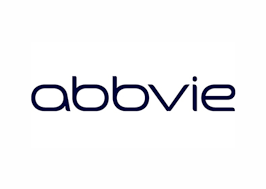Article
AbbVie Announces Topline Data for Risankizumab for Crohn’s Disease
Author(s):
More patients treated with risankizumab 360 mg achieved clinical remission than the induction-only control group.

New data shows risankizumab (SKYRIZI) resulted in an endoscopic response and clinical remission at the one-year mark for adult patients with moderate to severe Crohn’s disease.
AbbVie announced on June 2 the positive topline results from the FORTIFY trial, a phase 3 maintenance study testing 360 mg subcutaneous treatment administered every 8 weeks.
“In our global clinical trial program to-date, risankizumab has shown clinically meaningful rates of endoscopic response and clinical remission among patients living with moderate to severe Crohn's disease,” said Michael Severino, MD, vice chairman and president, AbbVie, in a statement. “These results represent another step towards the development of risankizumab for these patients, many of whom do not find sufficient disease control with current treatments.”
Different Endpoints
In the study, researchers examined patients who previously responded to 12 weeks of risankizumab intravenous induction treatment. Each patient was re-randomized to receive either receive risankizumab 180 mg, risankizumab 360 mg or withdrawal from risankizumab treatment (risankizumab IV induction-only control group).
The investigators sought different primary and secondary endpoints for patients in the US and outside of the US, with co-primary endpoints of endoscopic response and clinical remission, defined by the Crohn’s Disease Activity Index (CDAI) in the US and stool frequency and abdominal pain in the outside the US analysis plan at week 52.
Risankizumab 360 mg
At the 1 year mark 47% of patients in the 360 mg arm achieved an endoscopic response, compared to 22% of patients in the induction-only control group (P <0.001).
There were significantly more participants in the risankizumab 360 mg cohort who achieved clinical remission (52% vs. 41%; P <0.01) in the US, while 52% of this patient subgroup achieved clinical remission outside of the US compared to 40% of the induction-only control group (P = 0.004).
The researchers also found that 39% of patients treated with risankizumab 360 mg achieved endoscopic remission compared to 13% of patients in the induction-only control group (nominal P <0.001) and 29% of risankizumab 360 mg-treated patients achieved deep remission compared to 10% in the induction-only control group (nominal P <0.001).
In addition, deep remission is a stringent endpoint defined by clinical remission (CDAI) and endoscopic remission, which both were measured in the same patient.
Risankizumab 180 mg
For risankizumab 180 mg, the treatment met the co-primary endpoints in the US, but not outside the US.
For this analysis, 47% of patients in the treatment arm achieved endoscopic response compared to 22% of the participants in the induction-only control group (P <0.001 per US analysis plan; nominal P <0.001 per OUS analysis plan). In addition, 55% of the treatment cohort achieved clinical remission, compared to 41% of patients in the induction-only control group (P <0.01) in the US analysis and 46% of patients in the risankizumab group outside of the US achieved clinical remission compared to 40% of the control group (nominal P = 0.124).
At the 1 year mark, 30% of the treatment group achieved endoscopic remission, compared to 13% of the control group (nominal P <0.001).
Finally, 25% of the risankizumab 180 mg group achieved deep remission, signficiantly more than the 10% of the control group that achieved deep remission (nominal P <0.001).
"Nearly half of patients were able to achieve endoscopic response after one year of maintenance treatment with risankizumab," said Marc Ferrante, MD, PhD, Department of Gastroenterology and Hepatology, University Hospitals Leuven, in a statement. “In a progressive, chronic disease where many people struggle to ever achieve endoscopic response, the rates achieved in this study are encouraging for patients.”





